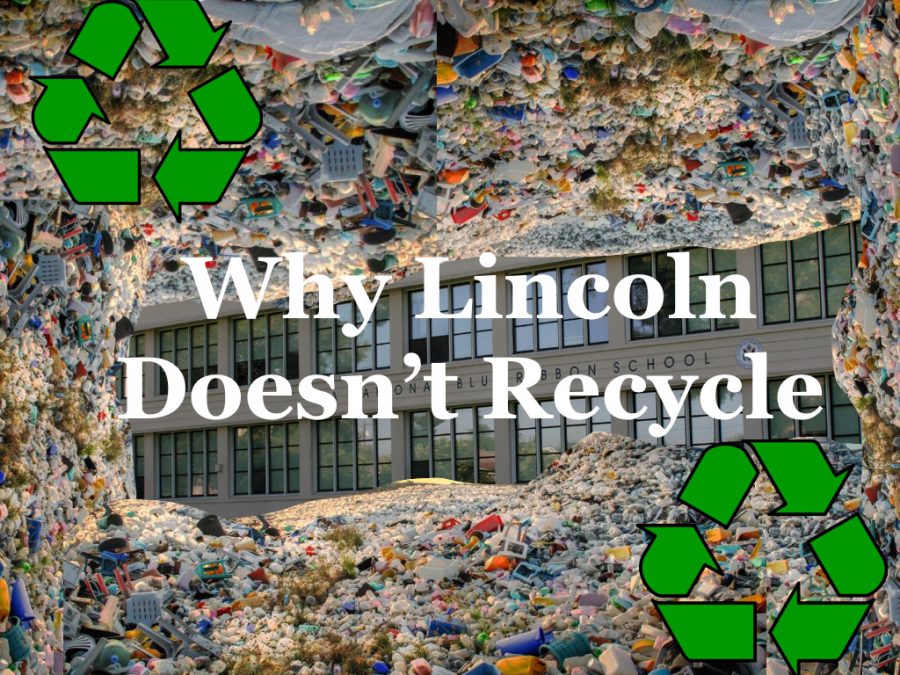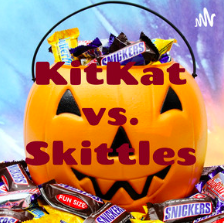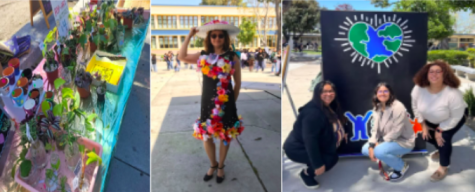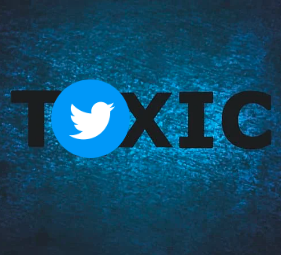OP/ED: Why Doesn’t Lincoln Recycle?
In 2015, the United States generated over 262.4 million tons of garbage. Sadly, the average American throws away nearly 7 pounds of trash on a daily basis. Americans view products that they can buy as replaceable, and meaningless.
The recycling bins are fake at Lincoln High School. While we do have paper recycling it becomes contaminated due to careless students. So it all goes directly to our dumpster. Cans & bottles have never reached a recycling center until students last year started a recycling club. Currently the club has been disbanded due to lack of members, but Mermaid Club has taken up the challenge as well as Ms.Owens our librarian.
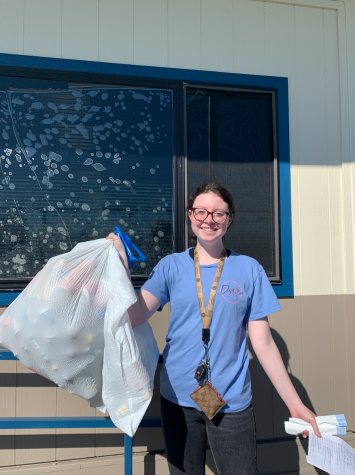
I interviewed Ms.Handschuh the AP Environmental Science teacher to discover the answer to my question. Where does our recycling really go? And why doesn’t Lincoln recycle? To answer the first part of my question, she explained that in San Jose most of it goes to Green Waste Recovery, which is a recycling plant that separates out paper plastic and cans. Ms. Handschuh explains the recent changes in processing recycling. She states, “ I think it’s just staying at the site until they get an order for it. It used to be that our recycling would leave the facility and go to China but China has decided that they don’t want our recycling anymore!”
Ms. Handshuh insightfully states that “People think they are contributing by recycling and believe that they can just keep buying, since they can just recycle” Due to the convenience, and lack of unawareness single use products have become rampant in a society based on capitalism; we have become unbelievably wasteful. Anything can be bought or replaced and it’s quickly adding up. While America consumes 30 percent of the world’s resources, we only make up around 5 percent of the world’s population. Americans don’t recycle. When we do recycle, we are terrible at it. About 80 percent of what Americans throw away is recyclable, yet our recycling rate is only 28 percent. Only 7 states in the United States have passed laws that mandate recycling.
This prompted my next question “ If there’s no market for recycling, then how do they make money, do they just leave it there?Ms. Handschuh answers honestly stating that, “They don’t, which is why a lot of recycling centers are closing, it will all just go to a landfill”
I interviewed Ms. Owens, the librarian in the Media Center, to learn about her experience trying to recycle at Lincoln. She told me that she was thinking of quitting, since a lot of centers are closing and that there’s so much recycling that it takes up to two trips for her to complete. When asked why she does it, she explained that “It breaks my heart that I see so much being wasted…see that’s my time, I do it because I don’t want to see it going to waste” When I asked her if we recycle paper she explained that students don’t separate it and the janitors don’t either. Even though Lincoln has bins labeled paper & trash, Ms. Owens claims that most of the trash ends up in the dumpster. “I see people just throw things in the garbage & go ‘Oh, they’ll separate it’ Ms. Owens said & then they throw things away in recycling that contaminates it like pizza boxes ” She adds.
Recycling doesn’t mean you’re saving the planet. Proper recycling yes, but consistently buying and chucking what you think is “Probably recyclable” contributes to our environmental crisis. Pizza boxes, plastic utensils, plastic bags, plastic lids, & styrofoam are commonly & wrongfully recycled. Americans recycle roughly 66 million tons of material each year, according to the most recent figures from the Environmental Protection Agency, but about 25 percent of what ends up in the blue bins is contaminated(National Waste & Recycling Association) Michael Shapiro, director of the U.S. Environmental Protection Agency’s Office of Solid Waste, also weighed in on the logistics “A well-run curbside recycling program can cost anywhere from $50 to more than $150 per ton…trash collection and disposal programs, on the other hand, cost anywhere from $70 to more than $200 per ton. This demonstrates that there is no financial incentive to recycling anymore since most of it goes to the landfill.
I told Ms.Owens that she shouldn’t be the only one doing this & she confessed that “My back kills me but, anywhere you go they want you to separate it, ahead of time. I had to take the caps off of everything & then when I got there they only took certain types of plastic & not all kinds of plastic, & they only took certain types of glass not all kinds of glass. Ms. Owens uses the money from recycling for schools supplies in the Media Center.
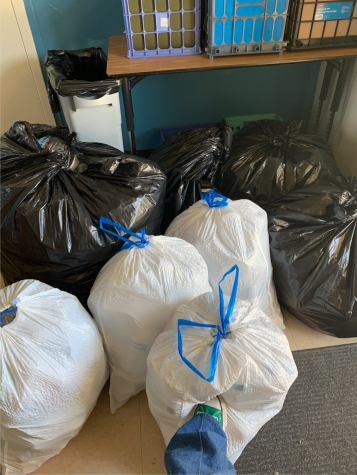
Students are completely unaware of their waste. Walking through campus is like a sad game of I Spy. Every day I find myself scrunching my face at the hidden treasures of Lincoln. For example wet tampons slathered on the bathroom door, ramen cups stuffed with chip bags on the blacktop, Starbucks cups littered along the wings, and empty plastic water bottles scattered like seeds. I am unhappy when I Spy these objects. Not only are we disrespectful to our environment, but we treat these products like they are meaningless. As a school we should inherit this battle as well, in order to become more aware of our environmental impact. We should follow our motto at Abraham Lincoln High School and do right.
So what actions could you going to take to fight this growing waste pool? Well, this could range from petitioning against big companies like Coca Cola, so that they’re responsible for their own recycling or our own school for more refillable water station. Students can do their parts by using reusable bottles and baggies to reduce waste instead of buying a bag of chips and a plastic water bottle every day. You can educate yourself on proper recycling and remember to do the little things. Teachers can do their part by making their work more accessible online. Most class sets could be online, paper could be a thing of the past.. Instead of focusing on the aftermath we should focus on prevention, by reducing the amount of paper we use and waste in general. It is our civic duty to care, and Lincoln High School should lead by example & do right by Earth.
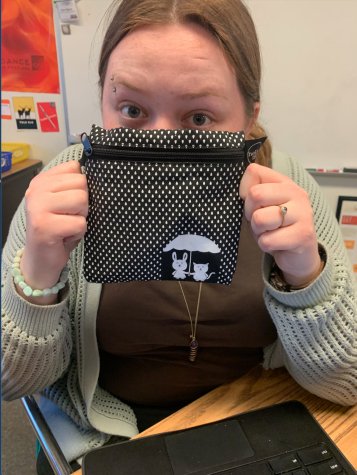
Works Cited
Albeck-ripka, Livia. “Your Recycling Gets Recycled, Right? Maybe, or Maybe Not.” The New York Times, The New York Times, 29 May 2018, www.nytimes.com/2018/05/29/climate/recycling-landfills-plastic-papers.html.
“City of San Jose.” What Happens to Your Recycling & Garbage | City of San Jose, www.sanjoseca.gov/your-government/environment/recycling-garbage/residents/what-goes-where/recycling-garbage-processing.
Semuels, Alana. “Is This the End of Recycling?” The Atlantic, Atlantic Media Company, 6 Mar. 2019, www.theatlantic.com/technology/archive/2019/03/china-has-stopped-accepting-our-trash/584131/.

A.K Chan is a human being that loves intriguing ideas and whimsical theories. She enjoys long walks on the pavement. She also appreciates a wide variety...

